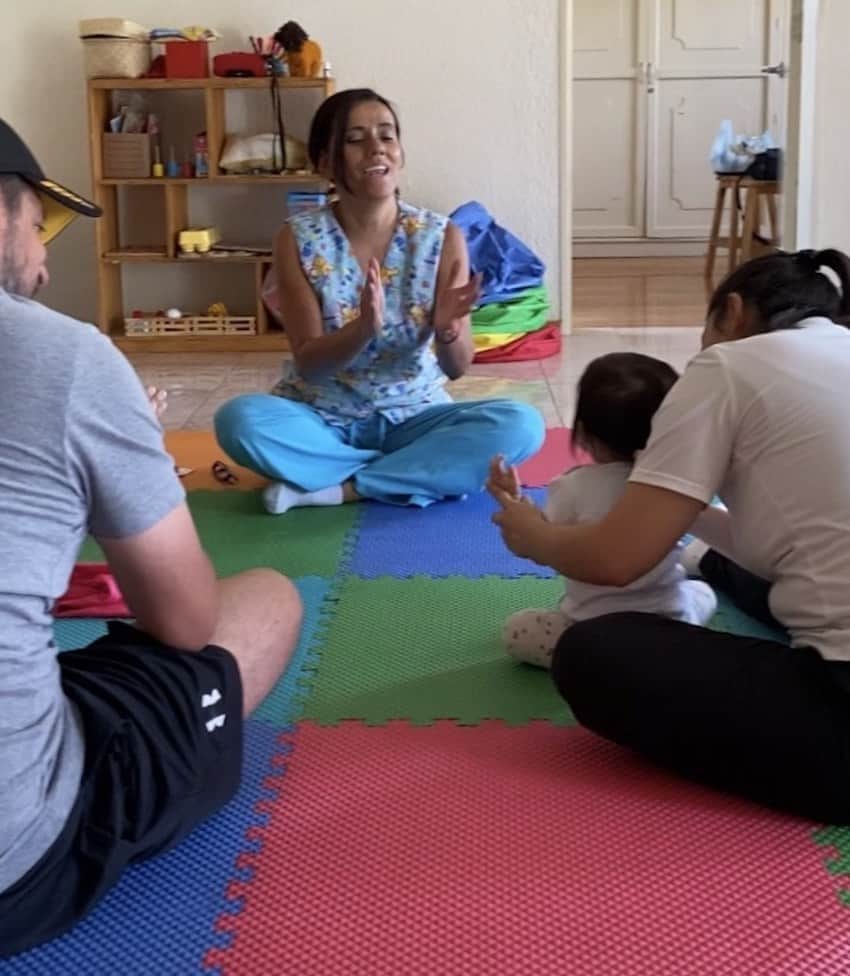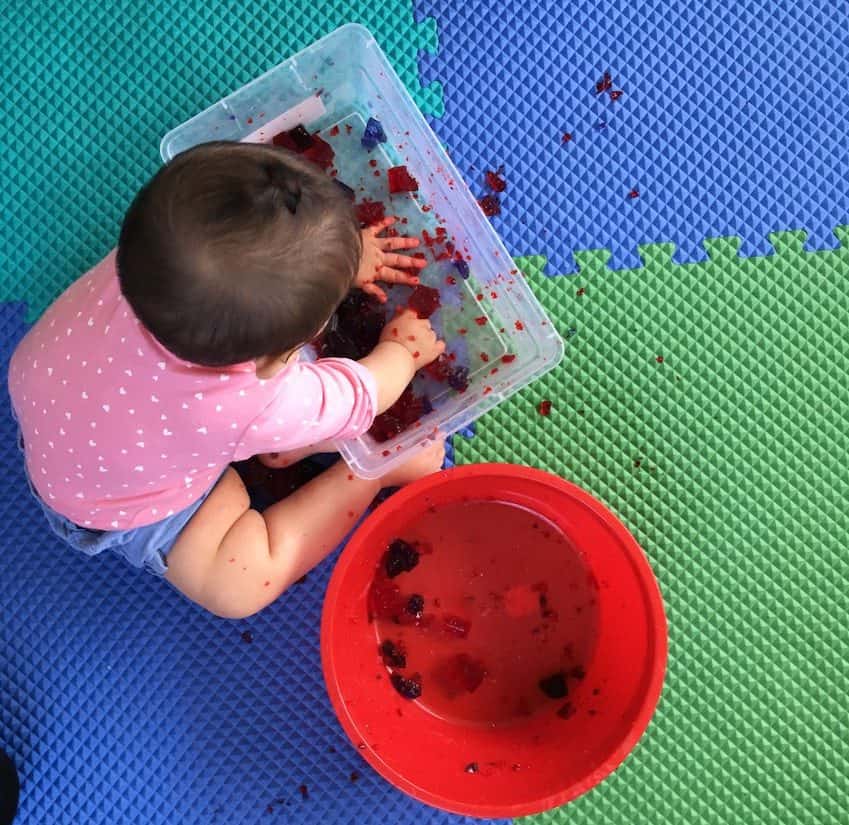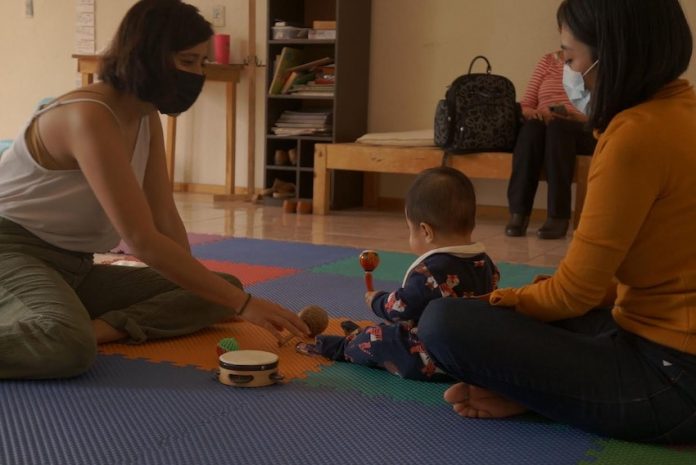The names of children mentioned below have been changed to safeguard their privacy.
María was only a few months old when the seizures started. As electrical energy flooded her brain, the convulsions rendered her body and mind unresponsive to her family around her. As she grew older, María struggled to stand, walk, and communicate. After multiple tests, she was finally diagnosed with cerebral palsy, the most common movement and motor disability in children.
According to the Cerebral Palsy Guide, an online resource produced by expert writers and researchers, early intervention is critical when helping children with cerebral palsy. There is no cure for the disease, but certain medical treatments and therapy can make a big difference for a child suffering from symptoms. Anti-convulsant drugs, for example, can also help with mood swings and emotional outbursts, which María was particularly prone to. The medicine, however, is very expensive.
Like many families who have a child with a disability, María’s parents were forced to choose between the many treatments and medical services she needed to help treat the severity of her condition based on the cost. Lacking financial support, the outlook for María’s development was bleak until news of her case reached Viridiana Pacheco. A young speech therapist originally from Mexico City, Pacheco had just relocated to Oaxaca to work with disadvantaged children. She describes the moment she heard about María:
“There was one case seven years ago that really built the foundations of Voces de Guiraa’ and what I wanted to do in Oaxaca. There was a girl (María) who needed medicine to help with her convulsions. We organized a meeting to see how I might be able to help her with her development.
In her first session, her parents told me the convulsions were getting worse. María was incredibly sensitive, angry, and confused. It was really hard, and at times, impossible to work with her.”

Pacheco knew the life-changing impact that cerebral palsy medicine could have on María’s daily life, especially when combined with therapy. Soon after meeting with María, Pacheco began reaching out to her contacts and asking neighbors and old friends for support, but before long, she hit a brick wall. One evening in 2016, she explained her frustration to Amy Burns and Tim Shepherd, two friends who had moved to Mexico from the United States and Australia, respectively.
“I remember seeing how touched Amy and Tim were when I told them about the case,” Pacheco says. “They told me that they would do whatever they could to pay for her treatment.”
The following day, Amy and Tim began an online fundraising drive. Not long after, enough money had been raised to pay for María’s anticonvulsant drugs as well as years of speech and physical therapy.
Buoyed by the wave of interest, the trio wanted to help more children in Oaxaca and decided they would create a charitable organization, Voces de Guiraa’, to help more families benefit from financial and emotional support. Since its foundation in 2017, Voces of Guiraa´ (meaning ‘together’ in Zapotec) has raised tens of thousands of dollars for children in Oaxaca to receive medical care and therapy for cerebral palsy, which would not have been accessible otherwise.

The problem of financing care is certainly not just limited to families in Mexico. In the U.S., soaring care costs are creating greater difficulties for families of children with disabilities. A recent poll carried out by the Disabled Children’s Partnership of over 2,000 parents and carers found that just one in three children with a disability are getting enough support from their educational settings; just one in five have the correct level of support from their health services, and one in seven are getting adequate social support.
In the United Kingdom, recent reports by the Department of Education, published at Bedford Today, uncovered a sharp drop in the rate at which children with disabilities receive education, health, and care plans. The disability charity Sense said delays in creating these plans will see thousands of young children “fall through the cracks” of the welfare system.
While government support is available in Mexico, long waiting lists for treatment in poorer southern states, including Oaxaca, mean it can take years for a child with disabilities to be correctly diagnosed and receive a treatment plan. If children with disabilities do not receive the care they need from the earliest age, they can “suffer incredibly when they are older,” according to Pacheco.
Children with disabilities can find themselves trapped and pushed to the outer boundaries of society from a young age. Rejected for being seen as different, they are also often targets of physical and mental abuse which can lead to damaging psychological consequences throughout their lives.
Without the power to talk and express themselves, children suffering from motor disabilities can become voiceless victims, frustrated and disheartened by their inability to communicate. Developing emotional connections becomes a lofty ambition, and exclusion and segregation become an accepted part of their daily routine.
Seeing how much Pacheco’s first case (María) meant to her, and how it had started a chain reaction that created her foundation, I’m tentative to ask what became of María’s story. Resolutely, Pacheco replies:
“I am so proud of her! [María] is 9 now and is talking, interacting, and communicating with people. She is a completely different person to the young child that I met 6 years ago. She has confidence, and balance and has control over her life and became so receptive to therapies as she grew older.”
Viridiana Pacheco hopes more and more people will talk about the benefits of therapy for children with disabilities in Mexico. A deeper discussion of the positive effects of therapy on the most vulnerable and in-need children can only help to break down bureaucratic barriers to state funding and public awareness, which will undoubtedly change the lives of children with disabilities for the better.
Gordon Cole-Schmidt is a public relations specialist and freelance journalist, advising and writing on companies and issues across multi-national communication programs.
